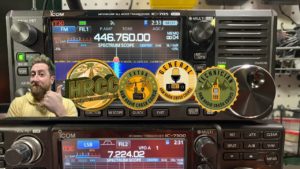“Water-based” analogs of transistors that are much faster than semiconductors have been created
Water is something one usually tries to keep as far away from various electronic devices as possible. But a group of engineers from Germany has developed water-based electronic switches, a kind of transistor analogs that are much faster than traditional semiconductor transistors.
We remind our readers that the transistor is the fundamental building block from which electronic circuits that generate, receive signals, process data, etc., are built. Semiconductor transistors switch rapidly between conducting and nonconducting states, encoding sequences 1 and 0 with electrical current. The speed at which a transistor switches from one state to another is what determines how fast a computing system is
As mentioned above, researchers at the Ruhr University Bochum have developed a completely new kind of electronic circuit, capable of switching much faster than its semiconductor counterparts. And the most surprising point is that the basis of this circuit is ordinary water with iodine salts dissolved in it. A special nozzle forms a stream of such water that is only a few microns thick
This stream of water is then exposed to a powerful, but brief pulse of laser light. This light knocks the electrons out of the ions of the dissolved salts in the water, which increases the electrical conductivity. A second beam of laser light can be used to confirm that this “water” transistor has switched to the desired state, which is determined by the parameters of the first pulse
Since the laser pulses can follow with a very high frequency, the water flow can also switch from one state to another very quickly. During the experiments, switching times were in the order of picoseconds, potentially allowing water-based transistor circuits to operate at clock frequencies in the terahertz range (1000 GHz), which is much faster than the capabilities of most common semiconductor materials
Of course, waterborne transistors are a purely experimental thing at this point in time. But it is likely that in the distant or not-so-distant future, complex high-speed “water” circuits based on similar principles may come into existence
![]()
If you have found a spelling error, please, notify us by selecting that text and pressing Ctrl+Enter.




